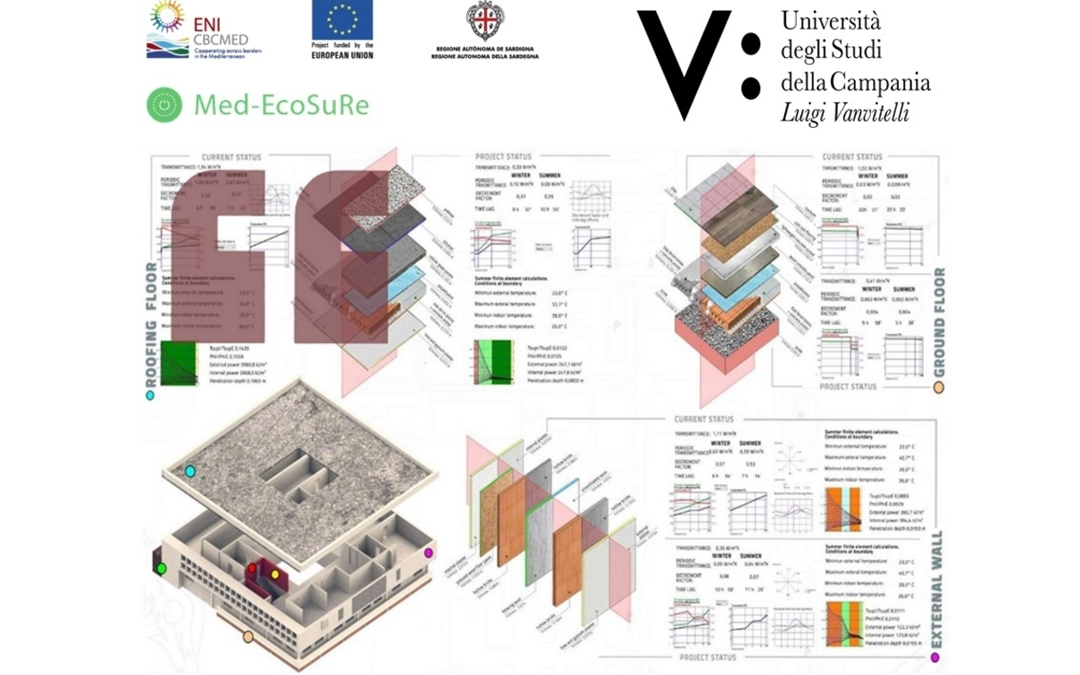An online training course was successfully delivered by the Department of Architecture of the University of Campania “L. Vanvitelli”, in collaboration with the Neapolitan Agency for Energy and the Environment, on the theme “Action Plan for Energy Efficiency in the Higher Education Building Sector.”
This four-month training course (from October 22, 2020 to January 13, 2021) enabled students (over 50 years old) from the project’s partner universities to acquire knowledge and skills on university building renovation strategies through theoretical courses and practical workshops.
As part of this training, the students analyzed three case studies: the pilot buildings of the National School of Engineering of Tunis (ENIT), the University of Florence (UNIFI), and An Najah National University (ANNU). The students proposed passive renovation solutions to meet the requirements of the analyzed university buildings for near-zero energy consumption.

Figure 1: Examples of design of renovation solutions for Med-EcoSuRe pilot buildings
Specific topics covered in the theoretical courses and workshops include:
– Assessing synergies between the building and its environment;
– Assessing comfort conditions in confined spaces;
– Energy auditing of the building envelope;
– Using sustainable technologies to design transparent and opaque envelopes: walls, floors, roofs;
– Choosing building materials with low environmental impact;
– Integrating innovative, sustainable, and energy-efficient technologies;
– Technological design to address gaps identified during the energy audit;
– Using specific software to assess the energy performance of the building system.
On January 13, UNI Campania, in collaboration with MEDREC and ANEA, held a final conference presenting the results of the training. Ten working groups presented their project proposals, presenting the environmental, bioclimatic, and energy analyses of the pilot buildings and their surroundings. These proposals were described using specialized software that allows for performance monitoring of the technical elements of the opaque and transparent envelope.
The workshop provided an interesting opportunity for interaction and dynamic learning on university building renovation strategies between students and professors from different backgrounds from the universities involved in the Med-EcoSuRe project.

Figure 2: Group photo during the final lecture of the course

